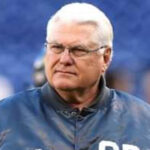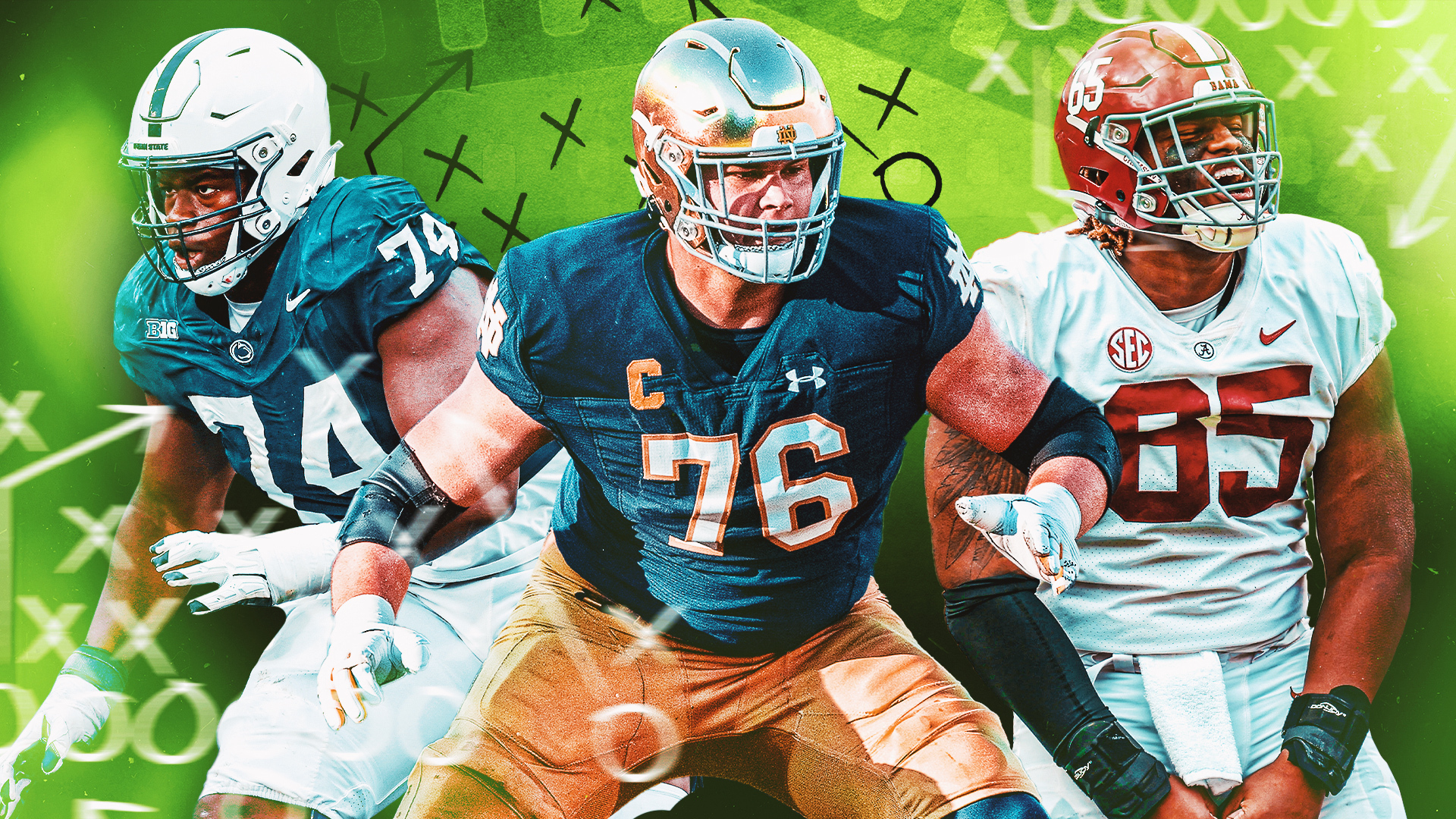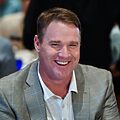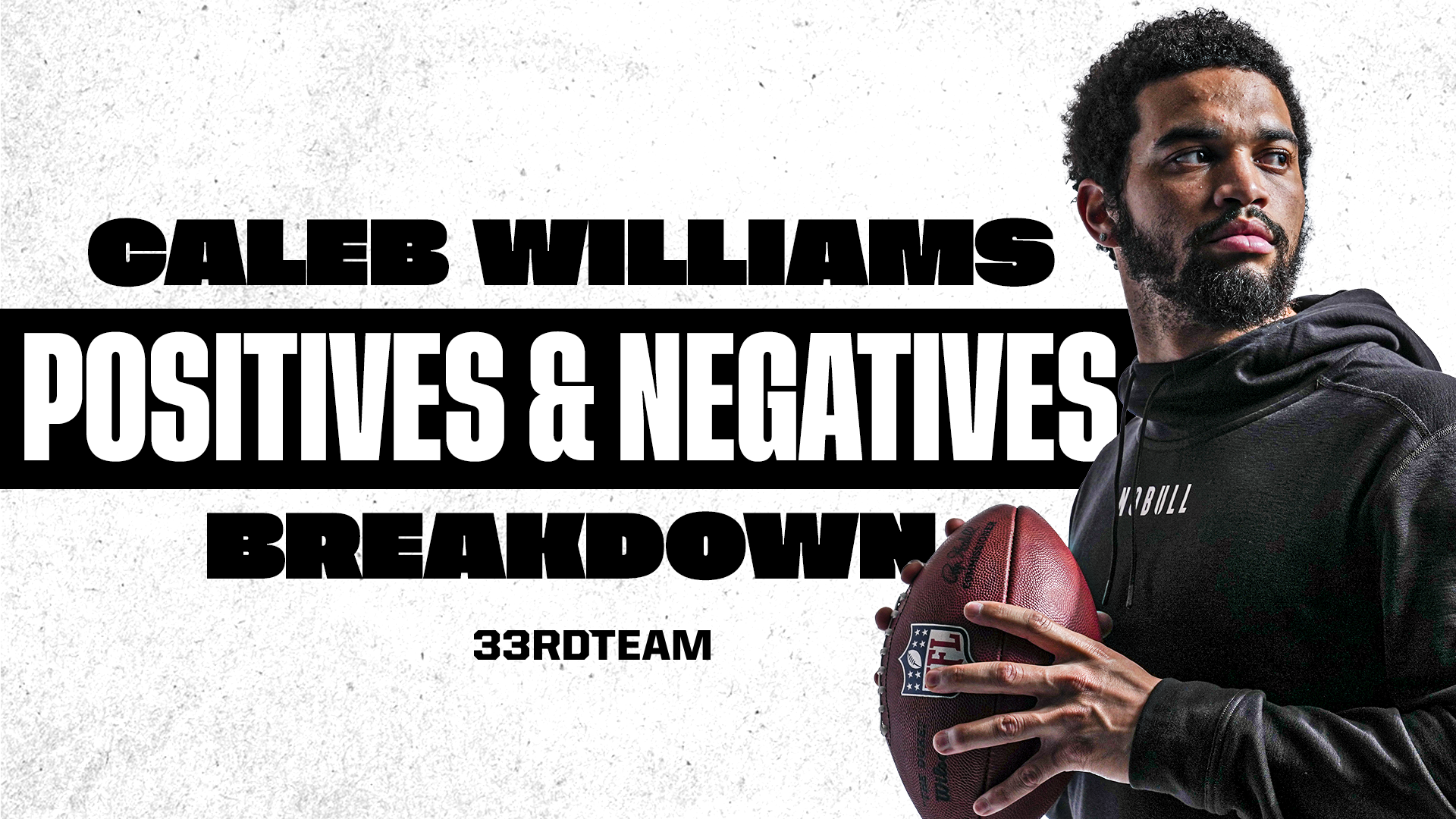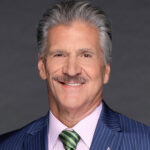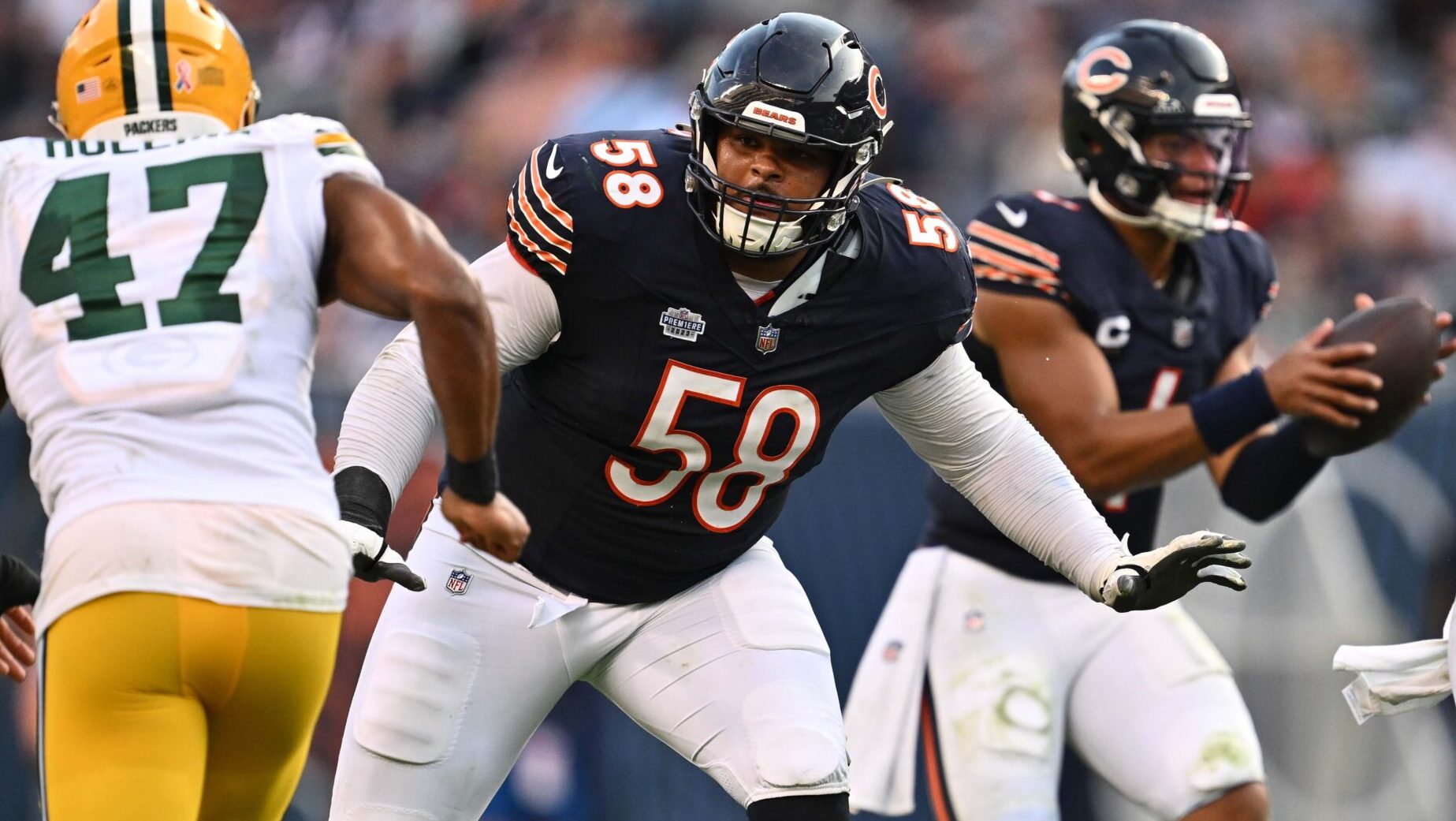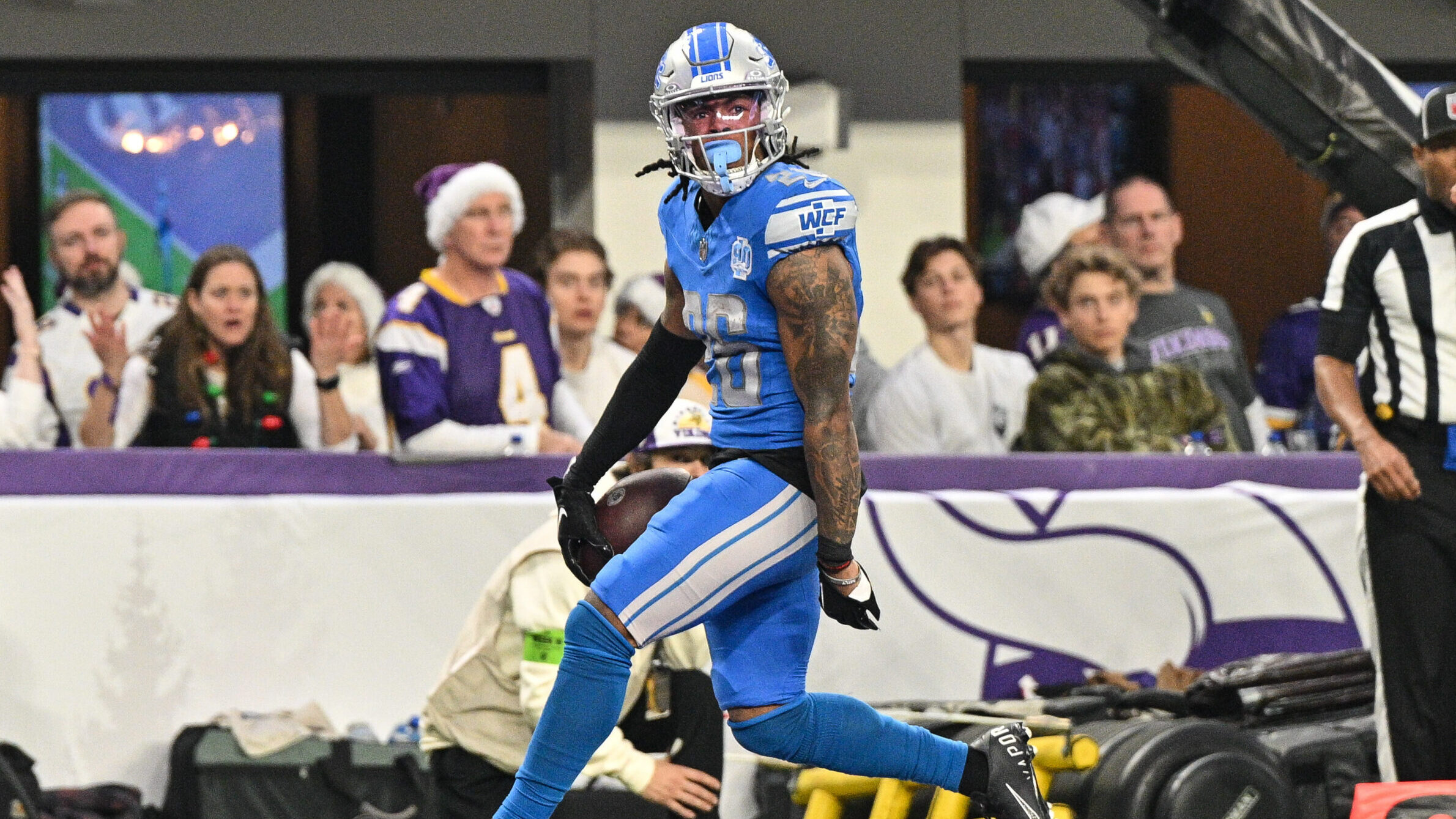Breakdowns
5/27/22
6 min read
The Friday Five: Chuck Pagano
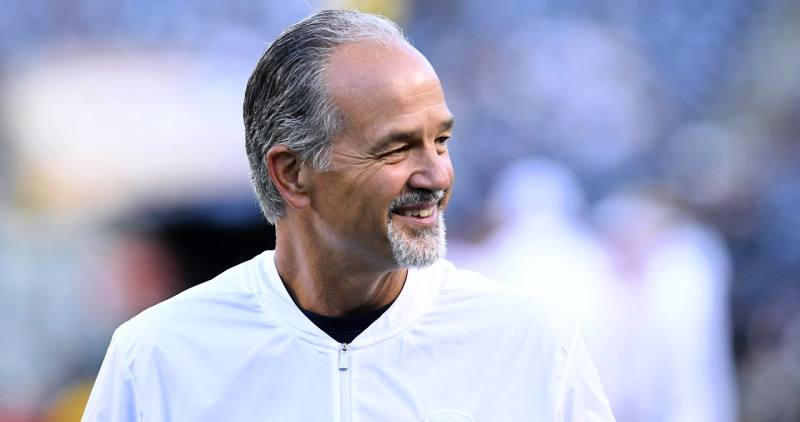
Chuck Pagano is a long-time NFL Coach, cancer survivor, and member of The 33rd Team. He was the Head Coach of the Indianapolis Colts from 2012 to 2017 and led the team to multiple playoff appearances, including an AFC Championship showing. His ChuckStrong gala events have raised millions of dollars toward cancer research.
We caught up with Chuck for this week's Friday Five...
Who is your biggest mentor?
I grew up in a football family. My dad was a high school coach in Colorado, and I grew up in the locker room picking up jocks and socks. I was the ball boy—the whole nine yards. So, having a chance to watch him lead as the head football coach at Fairview and then I eventually played for him. I'd say he's up there right at the top of the list.
I spent 10 years working for Butch Davis—not only at the University of Miami but also with the Cleveland Browns. He's had a huge impact on me. Ted Tollner was my first boss when I was a Graduate Assistant at Southern California in 1984 and 1985. Jimmie Johnson, John Harbaugh, Norv Turner, Dave Wannstedt—I’ve had a bunch of great mentors along the way.
After beating Leukemia, you started the ChuckStrong Tailgate Gala. Tell us a little bit more about that and how our readers can get involved.
It's kind of funny. I talk all the time about who was really responsible and behind the initial idea. Even in the first week of that 2012 season after I was diagnosed, I was in the hospital. I watched the game from a hospital room. My wife went to the stadium. It was Breast Cancer Awareness month, so she was donating her time that morning. She said, “you wouldn't believe it!” and that there were wristbands and T-shirts with “ChuckStrong” on the front. I turned on the TV, saw it and was blown away by what was going on.
Mr. Jim Irsay and Pete Ward (CEO) — the good folks over at the Colts — decided to do the ChuckStrong Gala at the Colts facility. It was amazing from the jump. This year will be 10 years for us. We're going to have it back in Indianapolis. Mr. Irsay is generous enough to keep doing it. It's one of his passions. He is, obviously, a very, very generous human being.
So we had this event. It turned out to be an outstanding tailgate party. It was just like going to a ballgame. All the players participated and had live events—catching passes from Andrew Luck, Adam Vinitieri teaching guys how to kick field goals— all that kind of stuff. Here we are, 10 years later, and we’ve raised $10 million now in 10 years. Every penny goes to cancer research at the IU Simon Comprehensive Cancer Center.
Anybody that wants to get involved and donate can contact the Indianapolis Colts on their website.
Are there silver linings you’ve found through your struggle?
Just how much good there is in our world. You wake up. You turn on the news. The tragic events that happened earlier this week in Texas. You can watch or read and see nothing but crazy stuff going on. I found out that there's way more good than bad in this world.
I'd only been in Indianapolis about six months when I got diagnosed, and for that community and the NFL community, Indiana — all those people to rally, it was amazing. They didn't know me. They didn't have to do that. I just found out just how good people there are and
When making it through my journey, we wrote a book called “Sidelined.” It was a scary venture for me. My buddies who I went to college with couldn't believe it, because they rarely saw me in class, never saw me crack a book. But, we wrote a book in hopes that I might help somebody get through their journey. So many people reached out to me during my cancer journey and told me about their circumstances and what they went through. It was truly amazing. It's what got me—besides the chemo and all the meds and things that you have to take—the support got me through that. My wife, my family and I all said: If we get through this, we're gonna try to help and do the same for others that are going to face a disease that doesn't discriminate. If we can help others, like people helped us, it's gonna be well worth it.
You also really find out that you're a lot tougher and stronger than you ever thought you were when you're faced with something like that. I was very fortunate. That type of leukemia was highly curable, and I had great care and great doctors.
What piece of advice would you give someone who is trying to break into coaching that you wish someone had told you when you were doing the same?
Never put any limits on yourself and don't ever let anybody tell you that you can't achieve what you set out to achieve. It’s hard work, perseverance and resilience and grit.
You have got to put the time in, but it's really about relationships. It’s a big people business—like most things are—there's no substitute for, for hard work, loyalty, doing things the right way and treating people the right way.
Then, communicating and networking. I wish I would have done more of that. I'm not talking about self promotion. I'm just talking about reaching out — especially as a young coach — reaching out to people and asking not only for advice as much as you can about your craft. I was on the defensive side of the football my entire coaching career before I got the head coaching job at Indy. Wish I would have spread my wings a little bit more. I coached special teams at Miami as well as coaching to DBs, but I wish I would have spent more time, especially at an early age in my coaching career, learning all facets of the game.
If you could invite any three people in history to dinner, who would they be, and why?
Vince Lombardi: I think those reasons are probably pretty clear. I grew up a Packer fan along with being a Broncos fan growing up in Colorado. What I’ve read about him and what he's done in the profession that myself and so many of us have chosen, how he impacted the game and what his legacy was…he would definitely be one. Who else? Probably, John F. Kennedy and Martin Luther King Jr. would be two other ones. I just think about the impact that they had on our country, the way they changed the way people thought and what they stood for…how they measured the cost of what they stood for. Those are the three I would choose.

